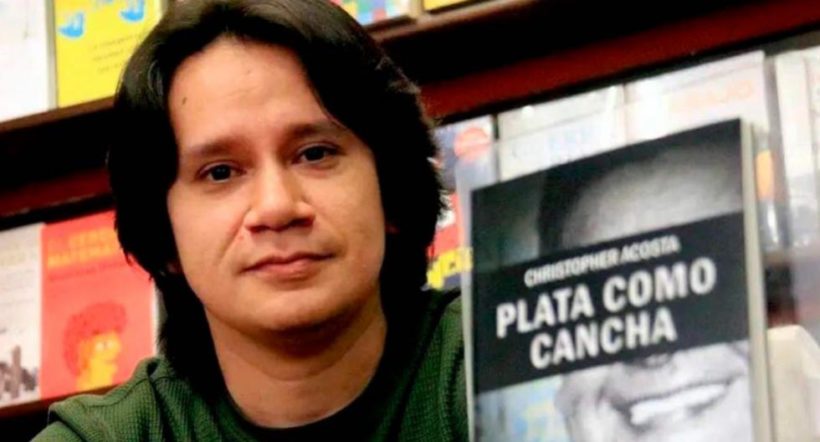Source: Ojo Público.
The judicial sentence against journalist Christopher Acosta has just set a dangerous precedent for freedom of expression and journalism. Acosta was found guilty of the crime of defamation against politician César Acuña Peralta, former presidential candidate and leader of the Alianza para el Progreso party.
Acuña sued the journalist for the publication of 55 sentences contained in the book Plata como cancha, written by Acosta. For the politician and education businessman, this content affects his honour. The information is based on public statements by third parties, as well as quotes from court and congressional sessions.
The two-year suspended prison sentence includes Jerónimo Pimentel, director of the publishing house Penguim Random House Peru, which distributed the book. This first instance ruling also ordered the payment of 400,000 soles in civil reparation in favour of the plaintiff. Experts agree that the conviction of Christopher Acosta is part of an “instrumentalisation” of the judiciary to “silence journalists”.
Various civil organisations have rejected the judicial measure. The Instituto Prensa y Sociedad (IPYS) described it as “aberrant”, while Proética pointed out that the sentence “seeks to intimidate investigative journalism, a key element in the fight against corruption”. The National Association of Journalists of Peru (ANP) also criticised the conviction. This organisation registered more than 200 attacks on journalists and media outlets in the country in 2021.
The case is relevant not only because it puts the free exercise of journalism at risk, but also because it comes in a year of municipal and regional elections, to be held next October, where journalism will play a key role in getting to know the candidates in depth.
Meanwhile, 2022 has arrived with the confirmation of the third wave of the pandemic in the country. The Omicron variant has become predominant and in three weeks we could exceed 150,000 cases per week, when in the second wave the highest peak was 60,000 cases per week, said deputy minister Augusto Tarazona.
In almost two years, the pandemic has also brought silent illnesses such as anxiety and depression, the global fight against which is being commemorated on 13 January. The current course of the health crisis indicates that the pathogen will continue to circulate this year, that society will have to resume its daily activities while it learns to live with the virus, and that so-called herd immunity is a phenomenon far from being achieved in the short term.










